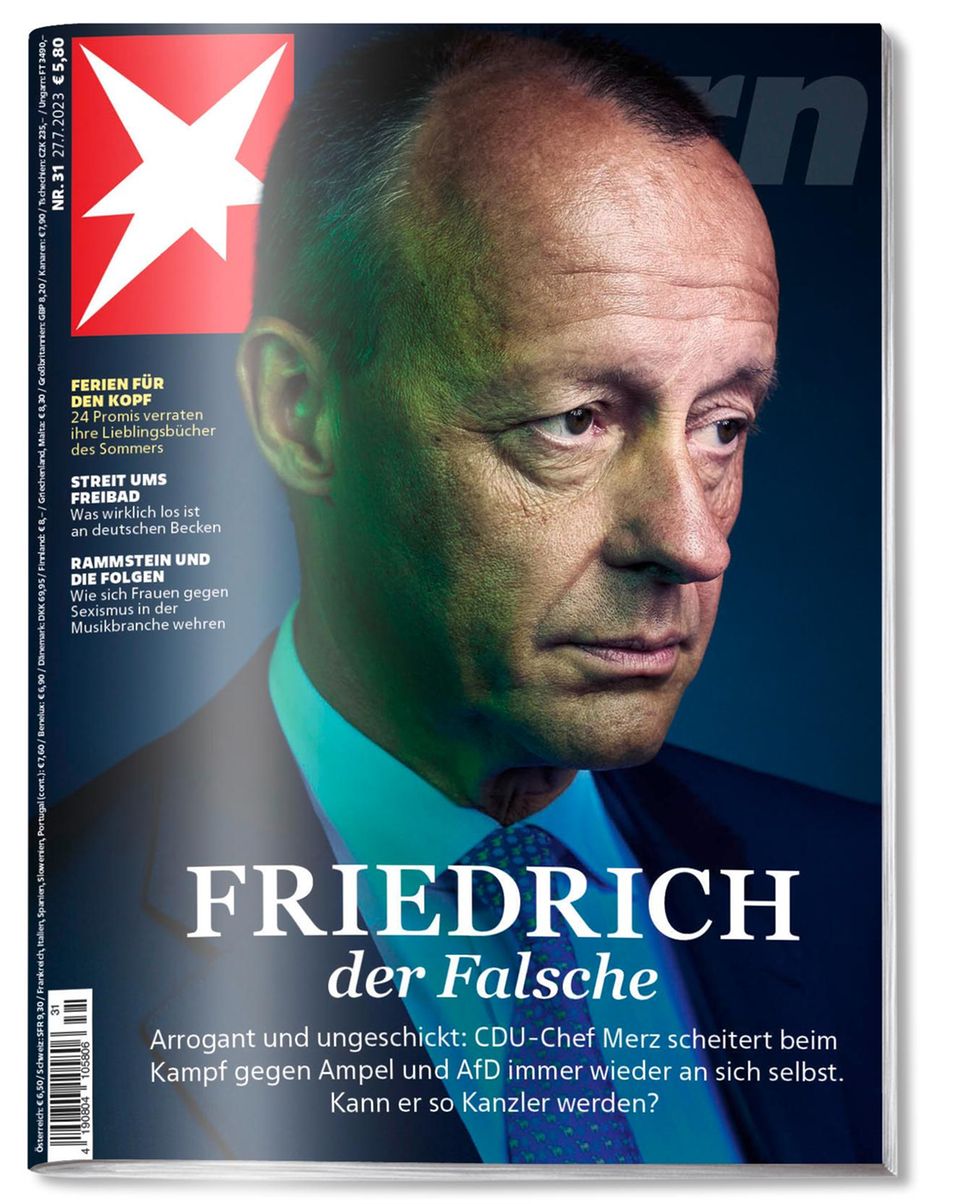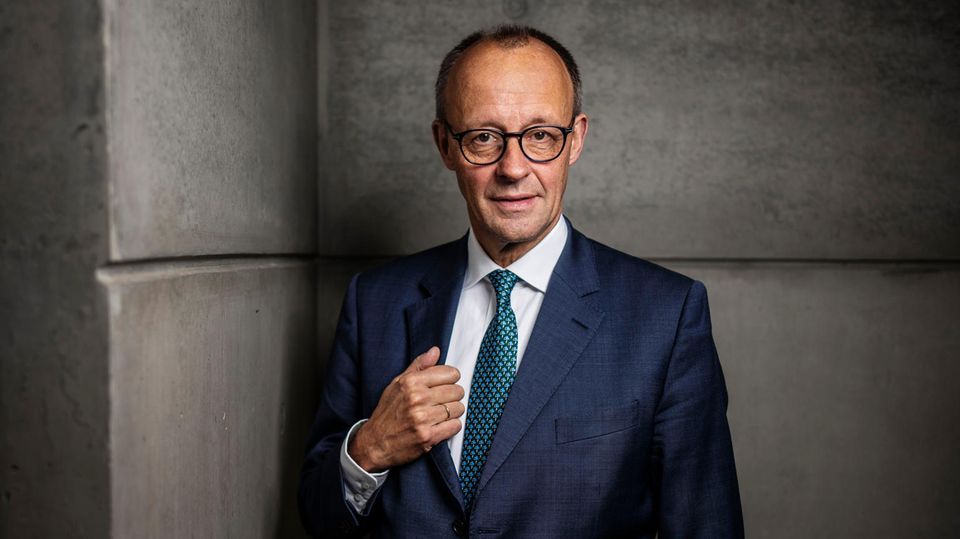star editor-in-chief
Gregor Peter Schmitz about Friedrich Merz’s “Operation Kanzleramt” and the current star
“How Friedrich Merz is planning to replace Olaf Scholz”: The cover of the new one star
© star
Friedrich Merz has one and a half feet in the Chancellery, writes Gregor Peter Schmitz. The star-Editor-in-chief about the ambitions of the CDU leader – and MeToo in the European Parliament.
Journalism is sometimes considered the first “version of history.” This first version doesn’t always have to be correct, even if we self-confident journalists like to accept it. A few months ago we had Friedrich Merz on the star-Title, the line was: “Friedrich the Wrong”. At that time he had spoken so carelessly about the AfD that party friends shuddered at every new Merz interview. A little later the CDU leader was back star-Cover, now with a gap in his teeth – after his strange statement that asylum seekers get dentist appointments immediately, while Germans have to wait. This man as chancellor? Difficult to imagine.
But Merz’s “Operation Chancellery” is no longer hopeless; it is supported by the disastrous appearance of the traffic light coalition and rising poll numbers, also because the CDU leader seems to be taking the criticism to heart. He seems calmer, more relaxed, more disciplined. My colleagues Nico Fried and Veit Medick, who have accompanied him for years, describe the development as follows: “Merz has united the CDU behind him, not completely, but sufficiently. Everyone in the party would be happy if the candidacy for chancellor was a political bloodbath like 2021 could be avoided. Merz is a beneficiary of the circumstances, not irresistible, but inevitable. That’s enough for him.”
Friedrich Merz continues to be prone to unpredictability
So now “Frederick the Inevitable”? It’s not that far yet. Merz continues to be prone to impulsiveness and unpredictability, the CDU must pass the elections in the East and clarify its relationship with Angela Merkel. Nevertheless, Friedrich Merz has one and a half legs in the Chancellery.

Friedrich Merz on the cover of star in July 2023
© Henning Kretschmer/Focus Agency
You can also see this development in the SPD. To be on the safe side, their strategists appear to be chancellors Olaf Scholz now wants to establish himself as “Peace Chancellor”, perhaps because it gave a SPD predecessor, Gerhard Schröder, a boost in popularity in 2003 by positioning himself against the American war in Iraq. I didn’t share Schröder’s position at the time, but at least it was a clear and clearly communicated position. Scholz’s Ukraine course, on the other hand, can often only be guessed at, so diffuse is his communication about it. Even though Germany is now the second largest arms supplier, Scholz often seems as if he says no to everything until he can no longer say no. If his strategists see this back-and-forth as a possible campaign boost, they must be pretty nervous.
The Gallée case – #MeToo in the European Parliament
The European Parliament in Brussels was not always important, but it was always a happy place for exchange. Parties and partnerships were part of it. And politicians were often in the middle of it all. Malte Gallée, 30 years old and a member of the Green Party, was also not a MEP who bore boring speeches. He chatted casually in videos about waste regulations or the dangers of climate change and shared them on Tiktok under the name “polit.pilot”, 50,000 people followed his channel. Gallée understood how social media worked. But apparently he didn’t understand where the boundaries were. The research of my colleagues Charlotte Wirth and Nicolas Büchse tells of a political talent who apparently exceeded these limits. About allegations of sexual harassment that, of all people, the Greens seemed to take seriously for a long time – until… star asked questions and Malte Gallée then announced his resignation. More than a dozen employees and assistants entrusted themselves to the team of reporters. This creates a picture that a party that sees itself as a political ally of the #MeToo movement is said to have tolerated a climate of fear in the workplace and even put those affected under pressure.




